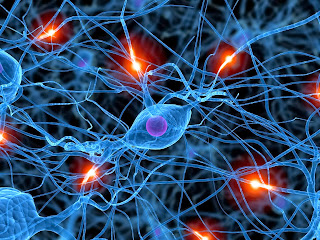Psychedelics as antidepressants
There is a slight (or maybe growing) interest in psychedelics, manly from the blogsphere, with various pod-casts that have interviews with the remnants of 1960s psychedelic culture describing, telling stories and experiences of the psychedelic drugs of the time. But despite the romantic idealism of 1960s drug counter culture, it was the devastating effects of heroin; which pretty much killed off large portions of the 'counter-culture' movements of the time. Keeping that in mind, as far as drugs and the appeal of the 'culture' attached - our current drug outlet at the moment is methamphetamine and cocaine. Which, in our fast paced race-to-oblivion society are the drugs of choice. They offer as much, if you take them for creativity, which would be akin to swallowing dirt, with the extreme depression, paranoia, schizophrenia and finally death as the added cost.
So it's promising to see scientific research into psychedelics and it's benefits, especially with people who suffer depression and other mental illnesses. From: Psychedelic Drugs Show Promise as Antidepressants:
"More specifically, as the researchers report in the August 20 issue of Science, ketamine seems to stimulate a biochemical pathway in the brain (known as mTOR) to strengthen synapses in a rat's prefrontal cortex—the region of the brain associated with thinking and personality in humans. And the ketamine helped rats cope with the depression analog experience brought on by forcing the rodents to swim or exposing them to inescapable stress. "Preclinical and clinical studies show that repeated stress or depression can cause a decrease in connections and an atrophy of connections in the same region of the brain," Duman explains, noting that magnetic resonance imaging shows that some depressed patients have a smaller prefrontal cortex as a result. "Ketamine has the opposite effect and can oppose or reverse the effects of depression" for roughly seven days per dose.
...A review, published August 18 in Nature Reviews Neuroscience, of research on this grouping of drugs generally—ranging from dissociative anesthetics such as ketamine to naturally occurring hallucinogenic compounds such as the psilocybin in "magic mushrooms"— shows their efficacy at treating obsessive-compulsive disorders and addiction as well as depression and anxiety, among other disorders. (Scientific American is part of the Nature Publishing Group.) In fact, ketamine has shown promise at reducing the risk of suicide and is currently being tested in humans for effectiveness in treating bipolar disorder and addiction. Psilocybin can decrease obsessive-compulsive behaviors, or even eliminate them entirely, for as long as a full day after treatment and is being tested to reduce anxiety and depression in terminal cancer patients.
...LSD—lysergic acid diethylamide-25—can combat inflammation, among other potential therapeutic uses. "The potency is about 300 times more potent than steroidal anti-inflammatories," says pharmacologist Charles Nichols of the Louisiana State University Health Sciences Center, who is working with the drug. "My lab is currently studying the ability of it to block or prevent inflammation in models of human inflammatory disorders, and the results are very promising so far."
The August 18 review, by psychiatrist Franz Vollenweider and neuropsychologist Michael Kometer of the University Hospital of Psychiatry in Zurich, proposes that various psychedelics' interaction with the receptors for the neurotransmitter serotonin may prove key to understanding their beneficial—and mind-bending—effects. "Psychedelics activate neuronal networks and the glutamate system that are implicated in the regulation of emotion," Vollenweider says, noting that their hallucinogenic effects can be impeded by blocking specific serotonin receptors in the brain (known as 5-HT2A). Psychedelics typically boost serotonin and may also boost the release of glutamate, according to the review authors, another neurotransmitter that has been linked to short-term but long-lasting brain functions such as learning and memory. More glutamate also has an impact on synapses. "This might result in an increased number and function of spine synapses in the prefrontal cortex," Vollenweider says."


Comments
Post a Comment